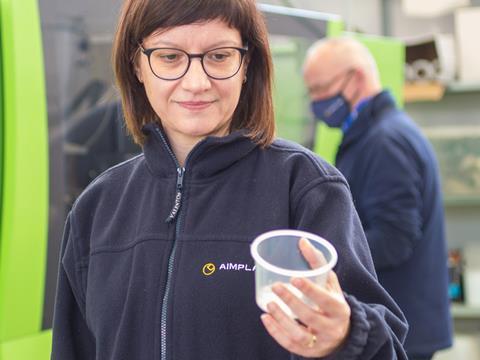
A new project from AIMPLAS, funded by the Valencian Innovation Agency, hopes to develop packaging for guacamole made from avocado itself that can extend shelf-life by 15%.
The GUACAPACK Project aims to use avocado waste to develop an innovative biodegradable packaging system that includes barrier labels and antioxidant additives.
When avocados are processed for use in food items, the amount of waste produced can account for more than 45% of the total weight of the avocado. The project hopes to provide a new life for this waste.
GUACAPACK is led by the company ITC Packaging, and the Universidad de Alicante’s research group on Polymer and Nanomaterial Analysis (Nanobiopol-UA) is also taking part.
The project aims to develop a new biodegradable packaging system from renewable sources that also extends the shelf life of food by 15%, thanks to a label with an oxygen barrier function that prevents the oxidation of food, and to the incorporation of natural antioxidants extracted from the avocado itself, which also helps reduce the use of synthetic preservatives.
To achieve this, starch from the avocado seed will be extracted and purified to obtain a film that can be used to make multilayer IML labels that have oxygen barrier properties and prevent the oxidation of food.
In addition, the active components of waste avocado skin and flesh with a high antioxidant capacity will be obtained and used as a component of a bioplastic (PLA) that will be injection moulded to manufacture the packaging system. When food makes contact with this system, AIMPLAS says that its shelf life will be extended by 15%.
The parties involved hope that this project will help achieve the United Nations Sustainable Development Goals (SDGs), especially SDG 3 on Good Health and Well-Being, SDG 9 on Industry, Innovation and Infrastructure, and SDG 12 on Responsible Consumption and Production.












